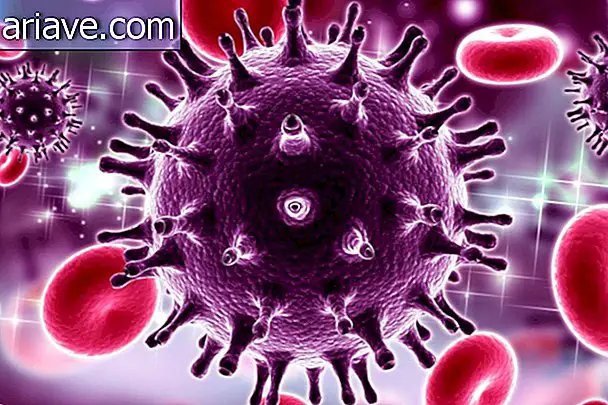Want to lose weight and can not? It may be your metabolism's fault
Metabolism is related to all vital functions, that is, to our enzymatic reactions and not just to the weight loss process. According to behavioral nutritionist Patricia Cruz, basal metabolism is the obligatory thermogenesis, that is, the sum of all the heat produced in the body in waking and resting at room temperature and fasting for at least 12 hours.
“If we apply overload (diet, physical activity and daily practices) to basal metabolism, we will get the energy metabolism”, explains Patrícia. Metabolism can also be understood as any biochemical reaction that occurs inside the cell, generating heat. Their speed varies from one person to another due to age, gender, body composition, level of physical activity and eating habits.
Anabolism and catabolism are two functions that are part of metabolism. The first is fundamental to repair cellular damage and refers to the synthesis of structural organic compounds (membrane proteins), enzymes and hormones. Catabolism, on the other hand, degrades organic substances to generate the energy (ATP) essential in maintaining heart rate, breathing and muscle contraction.

Factors that influence
According to the nutritionist, the basal metabolic rate is slightly higher in males. "This is due to androgenic sex hormones that stimulate metabolic processes more intensely than estrogens that are present in women, " explains the expert.
Age also has a major influence on metabolism. There are children who have much higher metabolic rates than adults - and those higher than the elderly. One explanation for this is depression of the thyroid gland, which occurs over the years of life and decreases the metabolic rate.
Between 20 and 30 years, hormones in both genders are more active. The woman is of childbearing age, meaning there is more muscle mass and less fat tissue. At the age of 40, hormonal changes begin, especially in women, changes in body composition, loss of muscle mass and gain of fat. In men, these changes also occur, however, after age 50.

Food and metabolism
Irregular eating habits will always speak louder in weight loss failure. “There are no people with slow metabolism, there are people with their own metabolism, according to weight, height and age; therefore, it should not be considered as slow ”, informs Patrícia Cruz. Obesity, for example, is a complex disease with multiple causal factors related to genetics, lifestyle, and emotionality. Therefore, there is no “slower” metabolism.
According to the nutritionist, the ideal is to learn how to make more appropriate food choices that consequently reduce weight. "Some practices such as regularizing wake-up time, keeping meals at the same time and having a physical activity routine help balance metabolism, " says the expert.

* Via advisory











